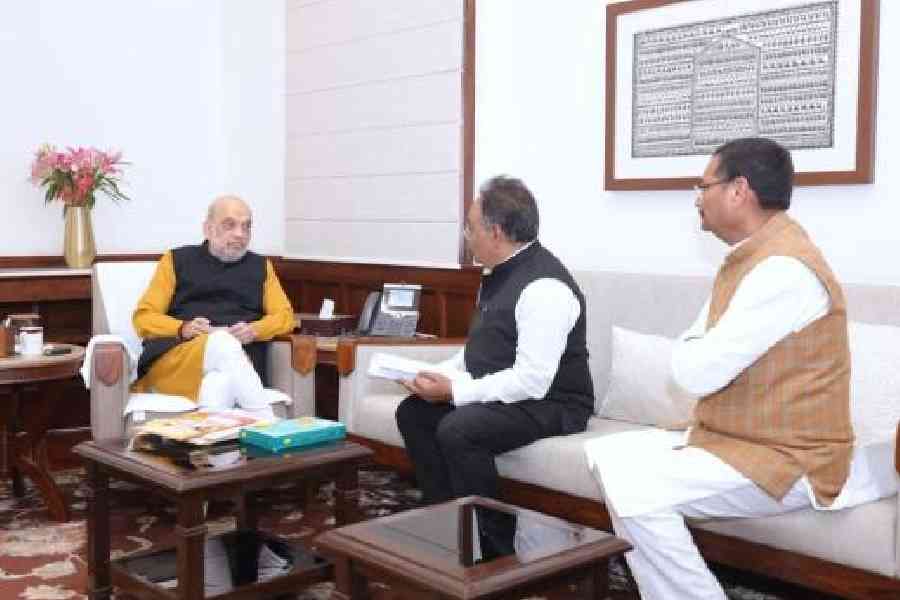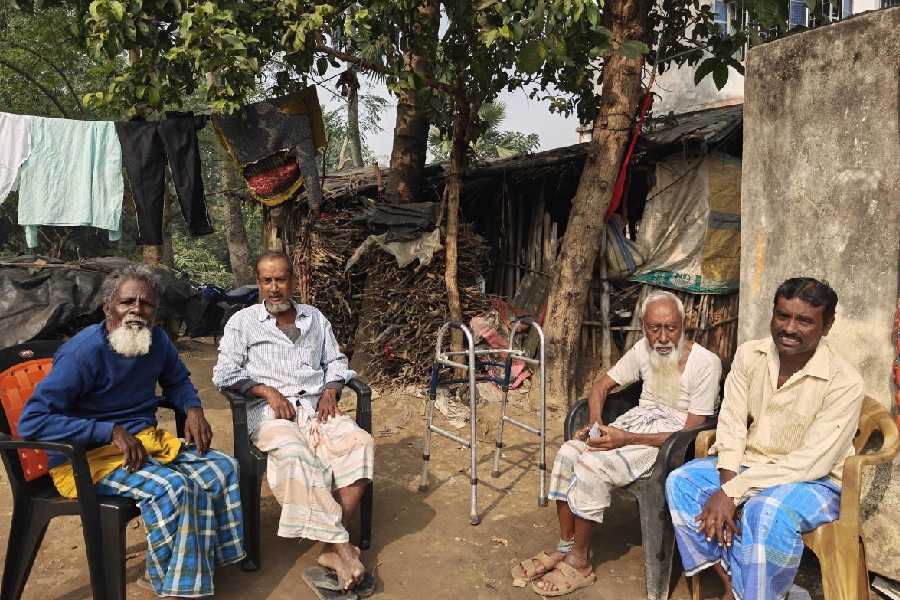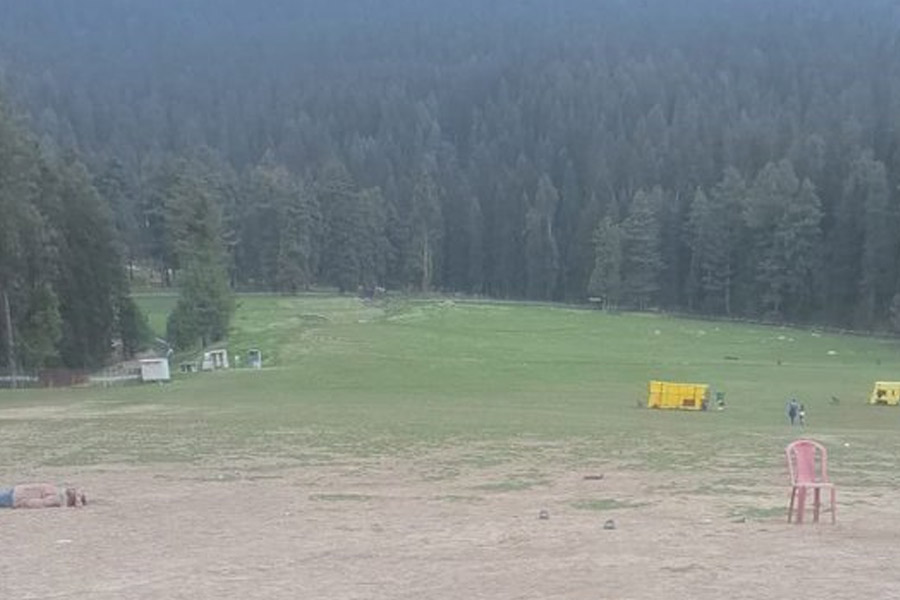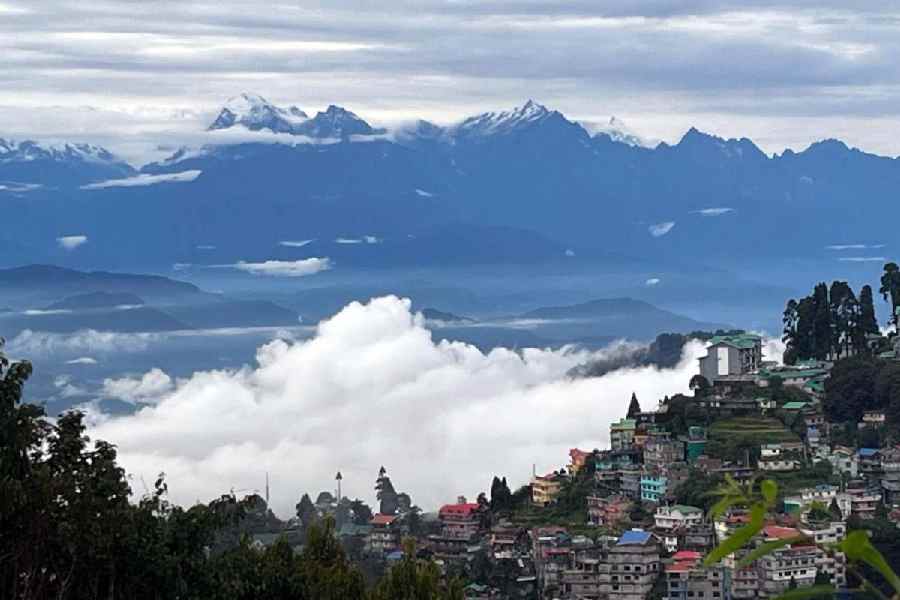 |
| Flaps of two of the cassettes of Rabindrasangeet in Santhali. Barka Saren of Santiniketan translated the songs and recorded the Santhali versions. A file picture |
Ranchi, Sept. 3: When at a small programme here nearly a decade ago an unknown group of artistes had presented Rabindrasangeet in Santhali, the effect was such that those present had strongly wished someone could help carry the legacy to a wider Santhali audience.
So when Barka Saren of Mauldanga village near Santiniketan translated some of the songs and recorded his first cassette, the move was much welcomed.
Thus, six decades after the death of the Nobel laureate who had his ashram surrounded by Santhal villages and had also written about them, his work first reached the Santhals through the renderings of his songs in their own language.
Since then, Saren has brought out four more cassettes and also CDs containing 20 Ranbindrasangeet numbers in both the original form and their renderings in Santhali.
But though these cassettes and CDs were well received in far-off places like Midnapore and Purulia, they are still to make their presence felt in the areas closer, the Santhal Parganas in Jharkhand, the heartland of the Santhals.
Santhals are the largest tribal community in both Bengal and Jharkhand and communicate among themselves through their mother tongue.
In spite of this, these renderings are not so known in the nearby Santhal Parganas where the Santhals follow and can also speak Bengali to some extent.
A few educated persons have heard of these renderings but the cassettes are not played here, said a Dumka-based journalist, adding that Nagpuri pop music, which is a different language, is rather popular here.
When contacted, Barka Saren explained over the phone from Mauldanga that unlike Bengal, the Santhals in Jharkhand are not that familiar with the works of Tagore.
Besides, the well-known Santhal scholar, Sarada Prasad Kisku, wrote a long poem on Tagore that helped introducing him to our community in this state.
“Even at many government functions involving us, my cassettes are played. All this has helped the cassettes and CDs spread in far-flung areas. Bengal and Purulia have the maximum demand of these,” he added. Media, too, has played its role in popularising these in Bengal, he pointed out.
To back up his point, he narrated his recent experience in Raniswar in Jharkhand.
“There were some young people who came to me and said they had heard my renderings of some Rabindrasangeet over FM radio and quite liked them. If it spreads like this, it will help a long way in my mission of taking Tagore’s work (songs) to my community,” he said optimistically.
While teaching at Santiniketan, Saren was drawn towards Ranbindrasangeet.
Encouraged by his wife Manjushree, he started learning how to sing under the tutelage of well known singer Gora Sarbadhikary.
He then took up translating Rabindrasangeet into Santhali.
Finally, under the direction of Sarbadhikary, he recorded his first cassette containing a few songs in both its original form and the renderings in 2002.
It was a beginning and he has so far recorded 20 such bilingual songs.
His latest cassette was released on the last birth anniversary of Tagore. All those songs have been highly acclaimed by music critics for beautifully capturing the finer nuances of the originals.
The cassettes were brought out by Gathani Records of Calcutta, that also brought out the Hindi versions of Tagore’s songs sung by Suresh Wadekar and Usha Mongeshkar.
Saren also performs regularly over the All India Radio and the electronic media.
Some of the songs translated by Barka Saren include Aaji jharo jharo mukharo bador dine/ Tehen jhipir jhipir japut mahare; Sedin dujone dulechhinu bone/ Enhil k barhad jhilaulen lange bibore.











